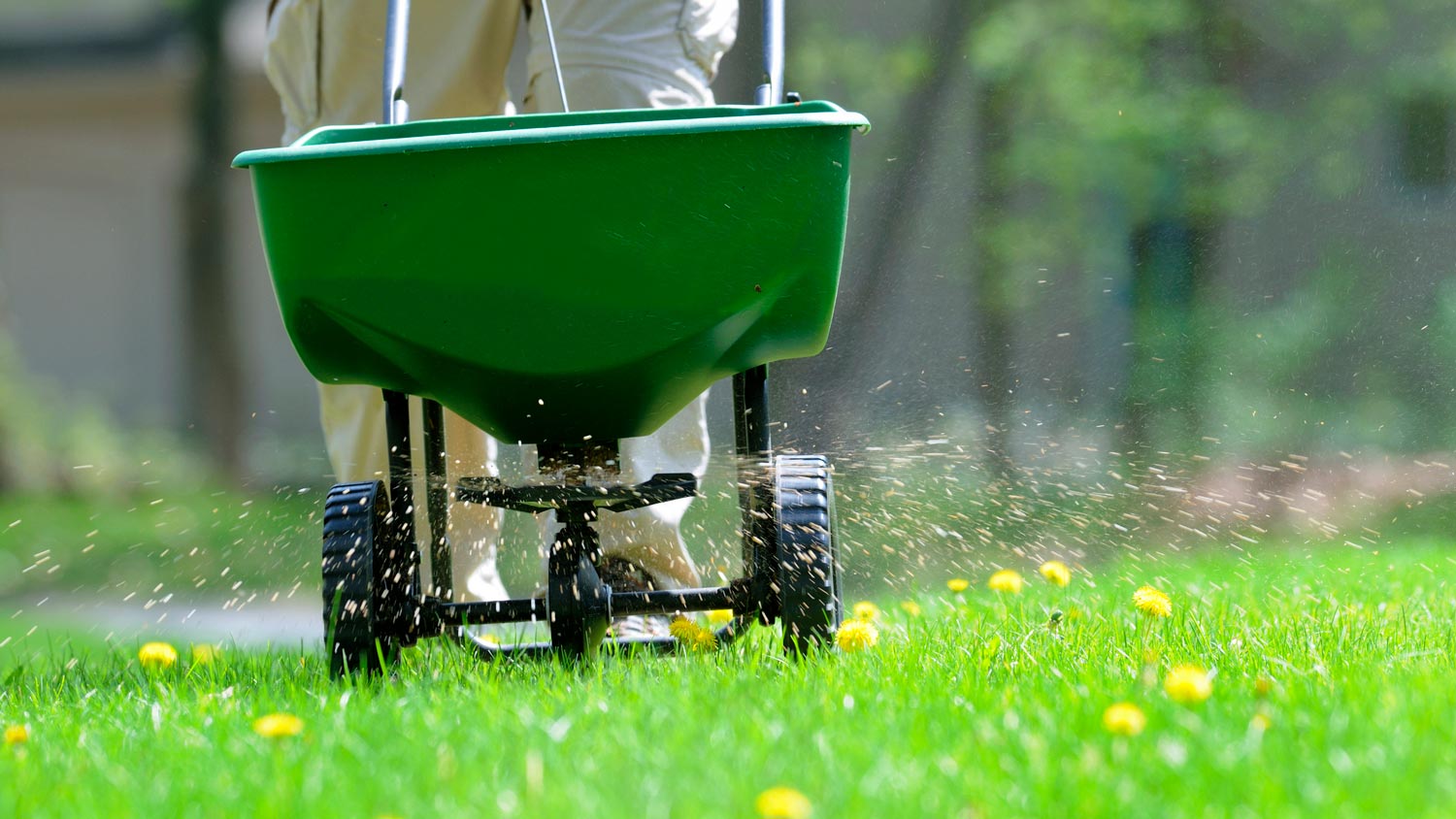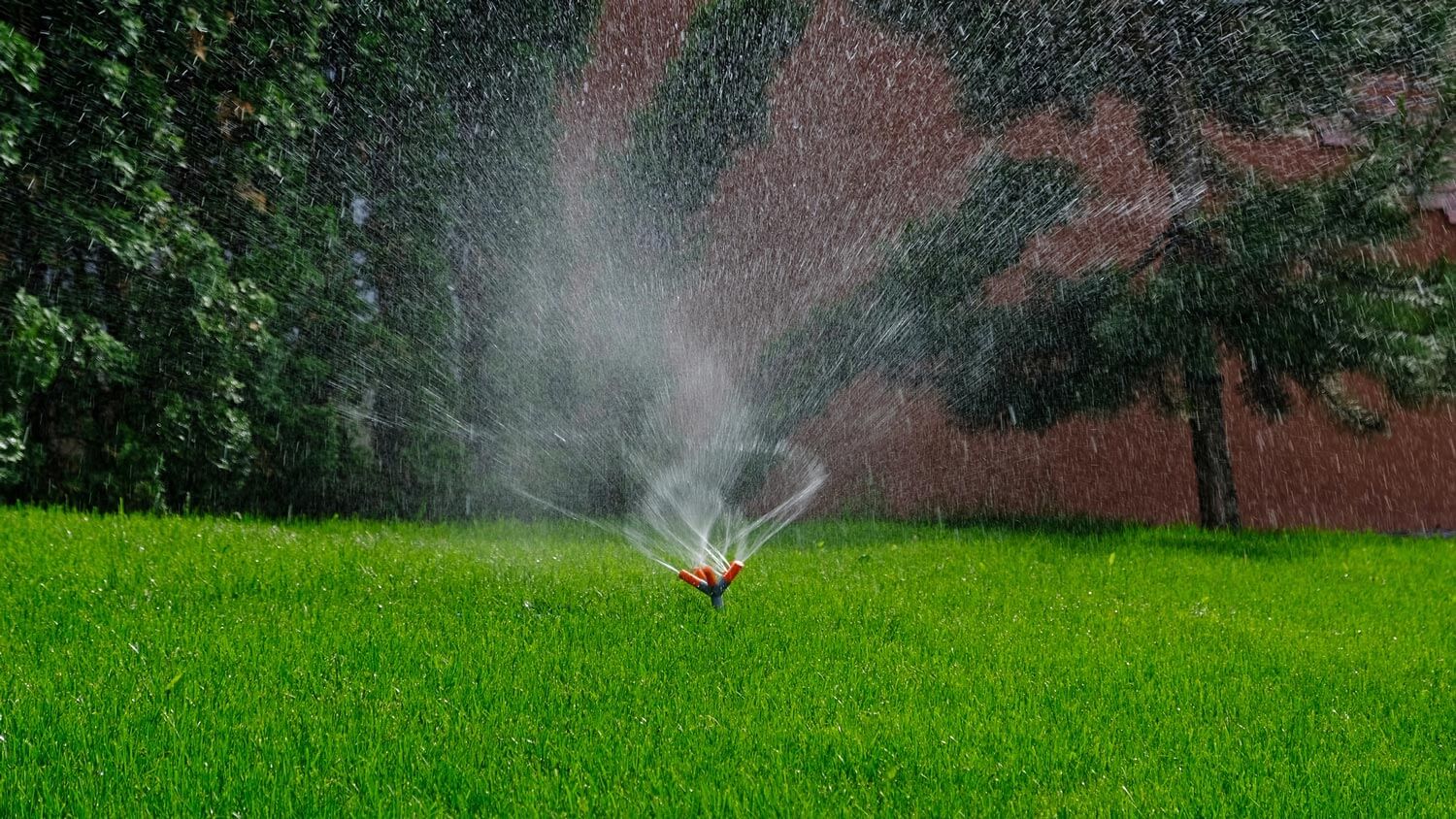Liquid vs. Granular Lawn Fertilizer: The Complete Homeowner’s Guide
Let’s get granular about the difference between liquid and granular fertilizer


Professional soil tests can cost more than $800, while home tests cost around $30.
You can purchase both types of fertilizer for under $80 at home improvement stores, although an organic granular product may be slightly more expensive.
Fertilizer provides an abundance of essential nutrients to help keep lawns lush and healthy.
Liquid fertilizer is easier to apply than granular fertilizer but costs more.
Liquid and granular fertilizer both have benefits—but not for every yard.
No one wants to walk on stuff, burnt, or otherwise uncomfortable grass—let alone look at it year-round. Nutrient-dense soil is absolutely key for growing vibrant, green grass. As you poke around online, you’ve likely noticed that you can choose between liquid or granular fertilizer to keep your lawn looking healthy and lush.
Both offer their own unique advantages, so which is right for you may depend on your situation and budget. Follow these tips to help you settle the liquid versus granular lawn fertilizer debate.
What Is Liquid Lawn Fertilizer?
Liquid lawn fertilizer is, as its name implies, a concentrated solution of nutrients in liquid form for your lawn. Fertilization is important for grass health. Products generally come in a powder that needs to be mixed with water before applied to grass, or in a bottle as a liquid that’s ready to go.
The square footage of your lawn usually dictates the cost to fertilize your yard, so choosing liquid fertilizer, which is easier to apply for some companies, may save you money. It costs $25 to $80 at home improvement stores.
Pros of Liquid Fertilizer
Very easy to use
Different products work for different stages of lawn growth, such as new grass or early springtime application
Often cheaper to apply if you hire a local lawn treatment service
Can last up to 10 years
Better for small areas that need nutrients
Cons of Liquid Fertilizer
Costs more than granular fertilizer
May be harder to measure if you’ve accurately distributed it on a large lawn
Shorter shelf life than granular lawn fertilizer
May need to be stored more diligently to extend shelf life
What Is Granular Lawn Fertilizer?

Sold in dry pellet form, granular lawn fertilizer is another way to administer nutrients—nitrogen, phosphorus, and potassium—to help your lawn look its very best. All three of these nutrients stimulate growth and can help reduce weed accumulation and pests as well.
Granular fertilizer costs around the same, but may be a little more than its liquid counterpart. At home improvement stores, expect to pay $30 to $80 for an organic product.
Pros of Granular Fertilizer
Usually the most affordable option if you’re self-applying
Offers slow-release benefits, so it doesn’t have to be laid down often
Can benefit your soil for 10 or more years
Recommended by many lawn care professionals for total lawn coverage, especially in infrequently-mowed areas
Easier to see for even coverage.
Cons of Granular Fertilizer
Requires more tools to spread (a drop spreader, for example)
Offers more basic, broad benefits for treating soil
Less variety in terms of products than liquid
Higher salt content, which can impact certain types of grass
Liquid vs. Granular Fertilizer: Which Is Right for Your Lawn?

Here are some additional questions to ask to help you decide if liquid or granular fertilizer is right for you.
Do a Soil Test
Testing your soil to see which nutrients it lacks is a good way to determine which fertilizer to use. If your lawn is already rich in potassium, for example, you then know you don’t have to order a special (and more expensive) liquid fertilizer to take care of your grass.
Soil tests done by a professional can cost as little as $811. Home tests, which can still give you a decent idea of your lawn’s nutrient profile, can be found for under $30 at home improvement stores.
Lawn and Soil Health
If your lawn is in a dire state, liquid fertilizer’s fast-absorbing benefits may be the solution given your situation if time is of the essence and you’re worried the grass might be dying.
Healthy, regularly-manicured grass can benefit from either type of fertilizer, though, so it may just come down to personal preference.
New Grass vs. Existing Grass
Grass that’s just been laid or has gone unmowed will likely benefit from liquid fertilizer over granular. Due to less spatial distance between nutrient and grassroots, the higher salt concentration in granular grass can heat up the roots. Too high of a salt concentration can make grass growth difficult.
Conversely, grass that’s been around for years—especially infrequently-mowed areas—can benefit from the slow-release, higher salt concentration of granular fertilizer. These products will help make grass's nutrients stay healthy and last longer.
DIY vs. Hiring a Professional
The method for administering fertilizers differ between liquid and granular. A broadcast or seed spreader is granular fertilizer’s most common application method. A spray bottle is often the go-to administration method for liquid products. Depending on the size of the grass area receiving fertilizer, it could take a few minutes to a couple of hours to complete the task.
A local lawn servicing team can walk you through which type of fertilizer they prefer to use. Many have access to both and make a judgment call based on their experience and your grass, or simply ask the homeowner if they have a preference.





- What Does Fertilizer Do For Grass?
- How to Prevent Fertilizer Burn for a Greener, Healthier Lawn
- What Do You Put Down First: Grass Seed Or Fertilizer?
- 8 Fertilizer Tips for a Showstopping Lawn and Garden
- When to Fertilize New Grass Seed for the Best Yard
- The Powerful Nutrients Contained in Lawn Fertilizer
- When to Fertilize Your Grass: A Complete Guide
- A Lawn Fertilizer Schedule to Follow for Best Results
- Why Is My Grass Turning Yellow? 15 Solutions to Try
- How To Make Grass Green: Become the Envy of the Neighborhood















